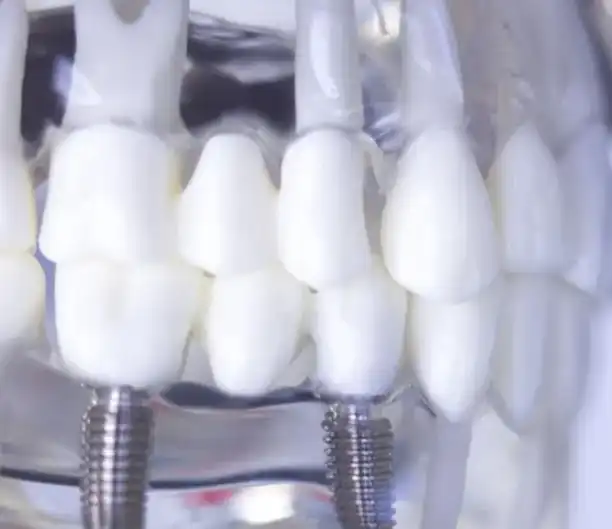1. Artificial joints and orthopedic implants
The successful application of medical titanium rods in the manufacture of artificial joints is mainly due to their excellent biocompatibility and corrosion resistance. These characteristics make titanium rods an ideal material for long-term coexistence with human bones without causing adverse reactions. Whether it is the manufacture of artificial joints such as hip joints, knee joints, or shoulder joints, medical titanium rods can provide stable structural support to ensure the recovery of joint function and the improvement of patient mobility. At the same time, its corrosion resistance effectively reduces the risk of postoperative infection and rejection, further ensuring the safety and rehabilitation effect of patients.

2. Internal fixation devices
In orthopedic surgery, medical titanium rods are also widely used in the manufacture of internal fixation devices such as bone plates and bone nails. These devices help bones restore their normal shape and function by fixing the fracture site. The lightweight and high strength of titanium enables these devices to reduce the burden on patients while ensuring sufficient strength, which is conducive to postoperative recovery. In addition, the corrosion resistance and good elasticity of titanium also ensure that the device still maintains stable performance after multiple cleaning and disinfection, providing patients with a safer and more reliable treatment method.
3. Microsurgery and precision instruments
The application of titanium in microsurgery is also becoming more and more widespread. Due to its non-magnetic, corrosion-resistant, and easy-to-process characteristics, titanium surgical instruments perform well in microsurgery. These instruments can perform surgical operations accurately, reduce damage to surrounding tissues, and improve the success rate of surgery and the quality of patient recovery. At the same time, titanium surgical instruments also have good reusability, reduce medical costs, and conform to the concept of sustainable development.
4. Other medical devices
In addition to the above fields, medical titanium rods are also widely used in the manufacture of various medical devices. For example, titanium vascular suture needles, sternal sutures, and other instruments play an important role in cardiac surgery; the application of titanium electrodes in medical equipment such as electrocardiographs improves the accuracy of diagnosis; the application of titanium incubators in vitro incubators provides a more stable experimental environment for biomedical research. These applications fully demonstrate the breadth and importance of medical titanium rods in the medical field.
5. Future development prospects
With the continuous advancement of medical technology and the improvement of people's living standards, the application prospects of medical titanium rods in the medical field will be broader. Especially today when the trend of population aging is becoming increasingly obvious, the demand for high-quality medical services and medical devices is growing. Medical titanium rods, with their unique performance advantages, will play a more important role in meeting these needs. At the same time, with the continuous development and innovation of materials science, the performance of medical titanium materials will be further improved, bringing more breakthroughs and innovations to the medical field.
In summary, the application of medical titanium rods in the medical field has achieved remarkable results and shown broad prospects. With the continuous advancement of technology and the continuous growth of demand, medical titanium rods will play a more important role in the future medical industry, bringing patients safer, more effective, and more convenient treatment methods.











